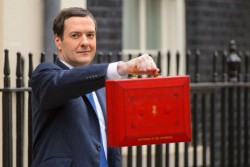 At the centre of July’s Budget was the government’s plan to cut £12 billion from the UK’s welfare bill. Whether you see it as heralding a significant shift from state reliance to the reward of hard work, or a body blow to millions of struggling households on low incomes, the Budget will, undoubtedly, have a significant impact on the lives of millions of Britons.
At the centre of July’s Budget was the government’s plan to cut £12 billion from the UK’s welfare bill. Whether you see it as heralding a significant shift from state reliance to the reward of hard work, or a body blow to millions of struggling households on low incomes, the Budget will, undoubtedly, have a significant impact on the lives of millions of Britons.
Only those households on very low incomes will be able to claim tax credits. Anyone earning more than £3,850 will find that they their Working Tax Credit allowance has been sharply reduced.
Child tax credit and Universal Credit will be limited to the first two children, affecting some 870,000 families. Tax credits and local housing allowances will be frozen until 2019.
The amount households can claim in benefits will be capped at £20,000 for those living outside London and to £23,000 for those living in the capital.
Landlords will also be worse off because of changes to tax relief on mortgage payments. Currently, it is possible to use mortgage interest payments to offset taxable profits from rent. Such tax relief is to be limited to the basic tax rate but will be phased in between 2017 and 2021. Landlords in the more expensive South East, where rents and mortgages payments are likely to be highest, will be hardest hit. Shares in many housebuilding firms have already fallen as investors expect the housing market to become flooded with houses put up for sale by disillusioned landlords.
Housing association tenants who earn more than £30,000 (£40,000 in London) will no longer benefit from cheaper rents but have to pay market rates.
Public sector pay rises will continue to be capped at 1 per cent each year. Directors’ dividends over £5,000 will be taxed.
The good news is that the minimum wage, renamed the Living Wage, will increase to £9 per hour by 2020.
Representative 21.54% APRC (Variable)
For a typical loan of £12,000 over 60 months with a variable interest rate of 21.54% per annum, your monthly repayments would be £310.60. This includes a Product Fee of £1,200.00 (10% of the loan amount) and a Lending Fee* of £763.00, bringing the total repayable amount to £18,635.80. Annual Interest Rates range between 8.6% to 27.87% (variable). Maximum 50.00% APRC. *Lending Fee varies by country: England & Wales £763, Scotland £1,051, Northern Ireland: £1,736.
Think carefully before securing debts against your home. Your home may be repossessed if you do not keep up repayments on your mortgage or any other loan secured against it. If you are thinking of consolidating existing borrowing, you should be aware that you may be extending the terms of the debt and increasing the total amount you repay.

